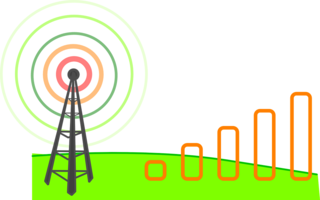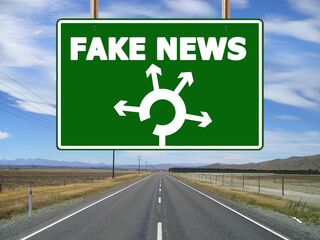Coronavirus Disease 2019
COVID-19 Conspiracies: Making Sense of a Global Pandemic
COVID-19 is not only a pandemic but an infodemic rife with misinformation.
Posted September 20, 2020 Reviewed by Abigail Fagan

In 2020, the world found itself in a precarious position unlike any other in the modern era. The novel coronavirus spread like wildfire across the globe, causing social isolation, economic shutdowns, prolonged illness, and, in many cases, death. No one anticipated struggling through a mammoth global health emergency. It was shocking and horrifying, and there's still no clear end in sight.
Moreover, there has been a stark absence of scientific and political consensus in many countries on how to best navigate the pandemic and enforce evidence-based health-safety behaviors. Americans, for instance, can all remember being told by scientists early in the pandemic to not wear masks. When putting these factors (e.g., emergency situation, threat, misinformation) together, we get a toxic stew that is a breeding ground for a host of problematic beliefs and troubling behaviors.
To the dismay of many people, numerous conspiracy theories, ranging from the plausible, although improbable, to the outright bizarre, found their footing across the globe, gaining traction on social media. Indeed, these conspiracy theories seemed to spread so quickly that global health experts, scientists, and politicians alike grew concerned with a pandemic of a different flavor: an infodemic.
COVID-19 Conspiracy Theories
There has been a relative explosion of conspiracy theories since the start of COVID-19. One of the more prominent conspiracy theories maintains that COVID-19 was an engineered bioweapon. This conspiracy theory is affiliated with theories contending that the Chinese government created and released the coronavirus to establish global dominance.
Outside of the U.S., and the West more broadly, some claim that the U.S. engineered the coronavirus as a bioweapon. Although there is essentially zero evidence to support these bioweapon theories, approximately (a) 25% of Americans believe that the coronavirus outbreak was intentionally planned by powerful people and (b) 10% of surveyed individuals in Britain believe that COVID was created in a laboratory (Pew Research Center, 2020; Sutton & Douglas, 2020).
Moreover, certain COVID-19 conspiracy theories pertain to conspiracy stereotypes, the latter of which typically blame a group of individuals, often a minority group, for society’s ills. For instance, some argue that COVID-19 was created by Jewish individuals to gain global economic control and others argue that Muslims spread the virus to attack the West. Compared with COVID-19 bioweapon conspiracy theories, COVID-19 conspiracy stereotypes appear to be far less popular, as only .4% to 1.6% of surveyed individuals in Britain agree with these conspiracy stereotypes (Sutton & Douglas, 2020).

One of the arguably more bizarre COVID-19 conspiracy theories advances that the novel coronavirus does not have a biological origin. Instead, COVID-19 was caused by 5G electromagnetic fields, and this “truth” is being covered up by corporations and the government. Still other seemingly outlandish COVID-19 conspiracy theories argue that Bill Gates unleashed the coronavirus in order to (a) microchip the population, (b) vaccinate the population, and/or (c) control the population.
Some even maintain that COVID-19 is a hoax altogether. Beginning in March of 2020, hashtags such as #FilmYourHospital circulated widely on social media. According to these positions, hospitals were actually empty.
Implications of COVID-19 Conspiracy Theories
Even though many, perhaps all, of these conspiracy theories seem remarkably implausible and might only be endorsed by a minority of the population, they can have dangerous implications for society.
Starting in April of 2020, individuals who advocated for 5G conspiracy theories began burning 5G towers in an effort to stop the virus. Moreover, one recent study found that endorsing 5G conspiracy theories is positively related to justifying real-life violence and a willingness to use violence to take action on the threat of 5G (Jolley & Paterson, 2020). These beliefs were also linked with justifying violence and a willingness to use violence generally.
The #FilmYourHospital hashtag contributed to individuals visiting local hospitals to record hospital waiting rooms. These visits may seem harmless, but they led individuals to unnecessarily expose themselves to the virus and take precious time away from essential healthcare workers. Reminiscent of the Pizzagate scandal, these beliefs also could provoke people to go into hospitals armed in an attempt to expose “the truth.”
A recent study also suggested that endorsement of COVID-19 conspiracy theories is related to reduced engagement in health-protective behaviors, including hand-washing and social distancing (Allington et al., 2020).
Important Considerations
It is important to remember, however, that most research on COVID-19 conspiracy theories is cross-sectional, meaning that the relations between these conspiracy theories and variables such as a willingness to be violent were measured at one point in time. Hence, we cannot conclude that belief in these conspiracy theories causes individuals to be more violent or less likely to engage in health-related behaviors. It very well could be the other way around, meaning that those less likely to wash their hands when it’s recommended, for instance, turn to conspiracy theories to make sense of situations.
In addition, those who believe COVID-19 conspiracy theories are likely to be the same folks that believe a range of conspiracy theories generally. Belief in other conspiracy theories is strongly linked with belief in COVID-19 conspiracy theories (Georgiou, Delfabbro, & Balzan, 2020). Thus, there are not only individual differences in the number and types of conspiracy theories endorsed, but in the likelihood to endorse conspiracy theories in the first place.
What Can We Do To Prevent COVID-19 Misinformation?

Although not focused on conspiracy theories in isolation, Pennycook and colleagues (2020) investigated one simple intervention to combat the spread of COVID-19 misinformation on social media. In the accuracy condition, participants were instructed to simply rate the accuracy of a single news headline that was unrelated to COVID-19 before completing a COVID-19 news sharing task. In the control condition, no intervention was given.
Participants in the accuracy condition were 2.8 times more likely to share true relative to false COVID-19 headlines compared with the control condition. These simple interventions are often referred to as nudges, as they nudge people in a certain direction, in this case toward accuracy and away from misinformation.
References
Pew Research Center. (2020, July 14). A look at the Americans who believe there is some truth to the conspiracy theory that COVID-19 was planned. https://www.pewresearch.org/fact-tank/2020/07/24/a-look-at-the-american…
Sutton, R. M., & Douglas, K. M. (2020). Agreeing to disagree: reports of the popularity of Covid-19 conspiracy theories are greatly exaggerated. Psychological Medicine, 1-3.
Jolley, D., & Paterson, J. L. (2020). Pylons ablaze: Examining the role of 5G COVID‐19 conspiracy beliefs and support for violence. British Journal of Social Psychology, 59, 628-640.
Allington, D., Duffy, B., Wessely, S., Dhavan, N., & Rubin, J. (2020). Health-protective behaviour, social media usage and conspiracy belief during the COVID-19 public health emergency. Psychological Medicine, 1-7.
Georgiou, N., Delfabbro, P., & Balzan, R. (2020). COVID-19-related conspiracy beliefs and their relationship with perceived stress and pre-existing conspiracy beliefs. Personality and Individual Differences, 166. Advanced online publication.
Pennycook, G., McPhetres, J., Zhang, Y., Lu, J. G., & Rand, D. G. (2020). Fighting COVID-19 misinformation on social media: Experimental evidence for a scalable accuracy-nudge intervention. Psychological Science, 31, 770-780.




